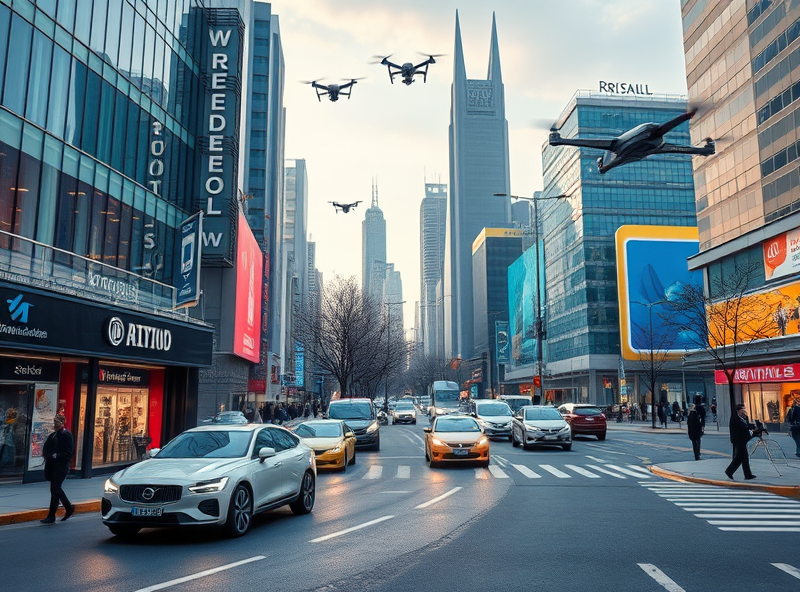
How AI is Transforming Everyday Life: Practical Applications and Benefits
AI in the Transportation Industry

Artificial Intelligence (AI) is revolutionizing the transportation industry, making it safer, more efficient, and environmentally friendly. One of the most notable applications is autonomous vehicles. Self-driving cars, powered by AI, use advanced sensors, cameras, and machine learning algorithms to navigate roads, avoid obstacles, and ensure passenger safety. This technology has the potential to reduce traffic accidents caused by human error significantly.
AI is also optimizing public transportation systems. Predictive analytics helps manage schedules, reduce delays, and improve route planning, ensuring smoother commutes for passengers. Additionally, AI-powered traffic management systems analyze real-time data to alleviate congestion, saving time and reducing fuel consumption.
In logistics, AI enhances supply chain efficiency by predicting demand, optimizing delivery routes, and managing inventory. Companies like Amazon and FedEx are already leveraging AI to ensure faster and more reliable deliveries.
Overall, AI in transportation is not just about convenience—it’s about creating a safer, more sustainable future for everyone.
AI in Retail and E-commerce

Artificial Intelligence (AI) is revolutionizing the retail and e-commerce industries, making shopping experiences more personalized, efficient, and enjoyable for consumers. One of the most prominent applications of AI in this sector is personalized product recommendations. By analyzing customer behavior, purchase history, and preferences, AI algorithms can suggest products tailored to individual tastes, helping shoppers discover items they truly need or desire. Additionally, AI-powered chatbots provide instant customer support, answering queries, resolving issues, and even assisting with purchases 24/7. This not only enhances customer satisfaction but also reduces operational costs for businesses. Inventory management has also seen significant improvements with AI. Predictive analytics can forecast demand trends, ensuring that popular items are always in stock while minimizing overstock and waste. Furthermore, visual search technology allows customers to upload images and find similar products, making the shopping process more intuitive and seamless. AI is truly transforming retail and e-commerce, benefiting both businesses and consumers by creating smarter, more efficient shopping experiences.
AI in Financial Services

Artificial Intelligence is revolutionizing the financial services industry by making processes faster, safer, and more efficient. One of the most impactful applications is fraud detection. AI algorithms analyze vast amounts of financial data in real-time to identify unusual patterns or anomalies, helping to prevent fraudulent activities before they occur. Additionally, AI-powered robo-advisors are gaining popularity for providing automated financial advice tailored to individual goals and risk tolerance. These tools not only save time but also make financial planning more accessible to a broader audience. Furthermore, AI is enhancing algorithmic trading by processing market data at lightning speed, enabling more accurate and timely investment decisions. By integrating AI, the financial sector is becoming more secure, efficient, and user-friendly, benefiting both institutions and consumers alike.
AI in Entertainment

Artificial Intelligence is revolutionizing the entertainment industry in ways we could only dream of a few years ago. From personalized content recommendations on streaming platforms like Netflix and Spotify to AI-generated music and art, the possibilities are endless. AI algorithms analyze your viewing or listening habits to suggest content tailored to your preferences, making your entertainment experience more enjoyable and efficient. Additionally, AI is being used in video game development to create smarter, more adaptive non-player characters (NPCs) and even to generate realistic virtual worlds. In filmmaking, AI tools assist in scriptwriting, video editing, and even creating CGI effects, reducing production time and costs. These advancements not only enhance the quality of entertainment but also make it more accessible and engaging for audiences worldwide.




